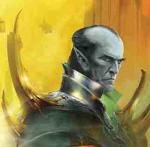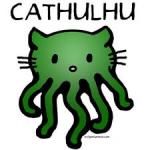The one thing I noticed, is that the author truly speaks through his characters, in the way he accuses the always-violent humanity, religion and much more.
And, yay, some light was shone on the events of the war with the Lizard Folk, and I finally understood the deal with space/time distortions and the arrival of the Kiriath and the dwenda. That was the strongest point of the book, imho, always liked the mention of different timelines.
Does anyone remember Ringil's quote about death? I think it was close to the beginning, in those chapters where he goes after the slavers.
Edit: found it:
"The war gave you death as a daily commonplace, an immediate possibility behind every badly timed sword stroke or stumbling misstep you made. Death was there at your side in the screaming chaos of battle, cutting down comrades and enemies alike, occasionally turning your way, ready for the last slip or sign that you'd really had enough of this shit and wanted the easy way out. Death came to you, pensive quiet and sated in the aftermath, smirking up at you from the rictus grin of the men who'd died hard, hanging about at your back in the waning cries and weeping of the wounded beyond repair. Death was your friend, your confessor, your intimate companion, and though the seduction might be lengthy and sly, you always knew that he'd get you in the end."
Gave me the chills. It's probably why I liked Ringil the most out of them all in this book, these inner monologues.
This post has been edited by Nocturnal: 10 September 2012 - 05:17 PM

 Help
Help













